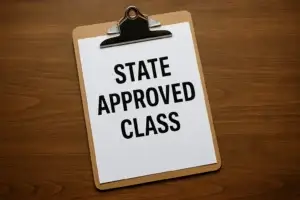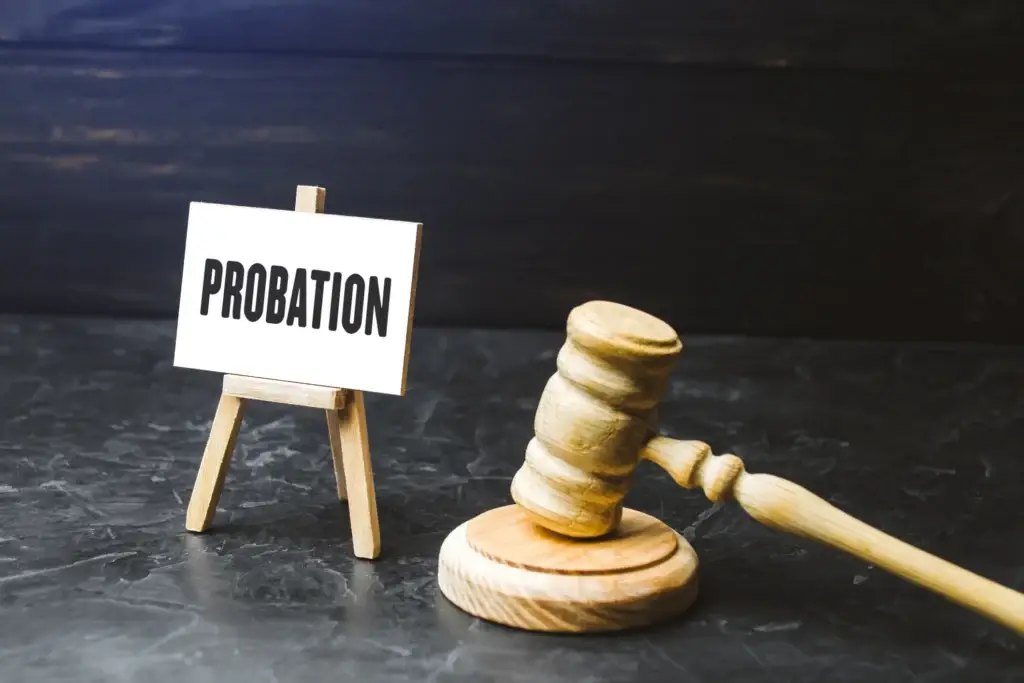April 21, 2025
Alcohol Awareness Classes for DUI/DWI Offenders: Your Essential Guide to Fulfilling Requirements and Moving Forward

Receiving a charge for DUI (Driving Under the Influence) or DWI (Driving While Intoxicated) is a deeply unsettling experience, bringing with it a cascade of serious legal, emotional, and financial repercussions. From the moment of arrest, through court appearances, and potentially facing fines, license suspension, and other penalties, the consequences can be significant and long-lasting. A common, and often mandatory, requirement imposed by courts and state DMVs following a DUI/DWI conviction is attending a state-approved alcohol awareness or alcohol education class. While this may initially feel like just another obligation to fulfill, these classes are designed to be a critical intervention point, offering valuable insights to help you understand the gravity of impaired driving, improve your decision-making regarding alcohol, and ultimately prevent future legal troubles.
In this comprehensive guide, specifically tailored for individuals facing the requirement of an alcohol class for DUI or DWI offenses, we’ll explore everything you need to know. We’ll discuss the legal background of these charges, detail what you can expect from a class specifically designed for DUI/DWI offenders, provide practical advice for successfully completing the program, and highlight how attending such a course benefits your personal growth, potential professional standing, and crucially, your legal path towards regaining driving privileges.
Understanding DUI/DWI Charges and Their Significant Consequences
Before delving into the specifics of the alcohol awareness class requirement, it’s important to have a clear understanding of what DUI/DWI charges entail and the severe consequences they carry. While terminology can vary slightly by state, the core concept is operating a vehicle while impaired by alcohol or drugs.
- DUI (Driving Under the Influence): This term is often used broadly and can refer to driving while impaired by alcohol, illicit drugs, prescription medications, or even over-the-counter drugs that affect your ability to drive safely. Impairment is key here.
- DWI (Driving While Intoxicated or Impaired): This term is frequently used specifically in relation to alcohol impairment and often implies a level of intoxication at or above the state’s legal limit for Blood Alcohol Concentration (BAC), which is 0.08% for drivers aged 21 and over in all U.S. states. For drivers under 21, Zero Tolerance laws mean the legal limit is typically much lower (e.g., 0.00% to 0.02%).
Regardless of the exact terminology used in your state, both DUI and DWI charges are serious criminal offenses with substantial legal penalties that can significantly disrupt your life. These commonly include:
- Hefty Fines and Legal Fees: Costs can quickly escalate into the thousands of dollars, including court costs, attorney fees, and state-imposed fines. Costs of Court-Mandated Alcohol Awareness Classes details typical class costs, which are just one part of the financial burden.
- Mandatory Driver’s License Suspension or Revocation: Your driving privileges will almost certainly be suspended or revoked for a significant period. The length depends on state laws, your BAC, and prior offenses.
- Mandatory Completion of an Alcohol Education Program or Rehabilitation: Courts and DMVs consistently require DUI/DWI offenders to complete approved alcohol awareness classes or more intensive substance abuse programs.
- Increased Car Insurance Premiums: Expect dramatic increases in your car insurance rates, potentially making coverage difficult to obtain or prohibitively expensive for many years. Alcohol Awareness Classes and Insurance Discounts provides more information.
- Probation: You will likely be placed on probation, requiring regular check-ins and compliance with specific conditions set by the court or probation officer, including completing the alcohol awareness class.
Community Service: Performing unpaid work for the benefit of the community is a common penalty. - Ignition Interlock Device (IID) Requirement: Depending on the state and severity, you may be required to install an IID in your vehicle as a condition of driving with a restricted license or for full reinstatement.
- Jail Time: Even for first-time offenses, jail time is a possibility, particularly with higher BACs or aggravating factors. Mandatory jail time is common for repeat offenses.
- Permanent Criminal Record: A DUI/DWI conviction results in a criminal record that can impact future employment opportunities, housing applications, and even international travel. Alcohol Awareness Courses and Your Driving Record: What You Should Know provides more context on the impact on your driving and criminal records.
Understanding the severity and scope of these consequences underscores why completing all mandated requirements, including the alcohol awareness class, is crucial for navigating the legal aftermath and preventing future incidents.
Why Courts Mandate Alcohol Awareness Classes Specifically for DUI/DWI Offenders
Courts and state authorities don’t randomly assign alcohol awareness classes. For DUI/DWI offenders, these classes are a cornerstone of the legal response, mandated primarily for highly specific and crucial reasons:
- Prevention of Future Impaired Driving (Reducing Recidivism): The most critical reason is public safety. Impaired driving is a leading cause of traffic fatalities and injuries. Courts recognize that simply penalizing offenders is often not enough to change the underlying behavior. Alcohol awareness classes are considered an evidence-based intervention designed to educate individuals on the profound dangers they pose when driving under the influence and provide them with knowledge and strategies to prevent repeating this dangerous behavior. Studies consistently show that participation in these educational programs significantly reduces the likelihood of individuals re-offending (How Alcohol Awareness Classes Can Reduce Recidivism).
- Educating Offenders on the Realities of Alcohol Use and Impairment: Many DUI/DWI offenders may underestimate their level of impairment, misunderstand how little alcohol it takes to reach the legal limit, or rationalize their behavior. These classes provide clear, factual information about:
- How alcohol affects specific cognitive and motor skills essential for driving (reaction time, coordination, judgment, vision).
- How BAC levels correlate with impairment levels, helping offenders understand just how impaired they were.
- The cumulative effects of alcohol and how it lingers in the system. This education aims to break down denial and equip offenders with a realistic understanding of impairment to prevent future incidents. The Science Behind Alcohol Awareness Courses delves into the scientific principles behind this education.
- Fulfilling a Condition of Sentencing or Probation: For DUI/DWI offenders, attending and completing a state-approved alcohol awareness class is almost always a direct order from the court or a mandatory condition of probation or a plea agreement. Non-compliance with this specific order can lead to serious legal repercussions, including probation violations and harsher penalties.
- Part of a Broader Rehabilitation Effort: Mandating alcohol awareness classes is part of a broader strategy by the legal system to address the behavior that led to the offense. While not a substitute for addiction treatment, the class provides foundational education and may encourage individuals to seek further help if they realize they have a more significant issue with alcohol use or dependence.
Alcohol Awareness classes are intended to provide a powerful emotional understanding of the potential consequences of impaired driving.
What to Expect in Alcohol Awareness Classes for DUI/DWI Offenders: Curriculum Tailored to Impaired Driving
Alcohol awareness classes mandated for DUI/DWI offenders are specifically designed to address the behaviors and knowledge gaps that contribute to impaired driving. The curriculum goes beyond general alcohol education and typically includes comprehensive content relevant to your offense:
- In-Depth Education on Alcohol’s Effects on Driving: Expect detailed information about how alcohol impairs the specific cognitive and motor skills required for safe driving, such as reaction time, hand-eye coordination, depth perception, peripheral vision, judgment, and the ability to multitask behind the wheel. Real-world examples and scenarios related to driving under the influence are often used.
- Understanding BAC and Impairment Levels: You will learn how Blood Alcohol Concentration is measured, the factors that influence your BAC (weight, gender, metabolism, amount consumed, speed of consumption), and how specific BAC levels correlate with increasing levels of impairment and increased risk of crashing. Understanding this helps offenders grasp just how impaired they were at the time of arrest.
- The Legal and Personal Consequences of DUI/DWI in Detail: Classes provide a thorough breakdown of your state’s specific DUI/DWI laws, the administrative penalties (like license suspension), the criminal penalties (fines, jail time, probation), and the long-term impact on your life, including your driving record (Alcohol Awareness Courses and Your Driving Record: What You Should Know), ability to get jobs, insurance rates ( Alcohol Awareness Classes and Insurance Discounts), and personal relationships.
- Strategies for Responsible Alcohol Use and Avoiding Impaired Driving: A significant focus is placed on developing practical strategies to prevent future impaired driving incidents. This includes learning to recognize your own signs of impairment, planning for sober transportation before consuming alcohol (designated drivers, ride-sharing services, public transit), understanding refusal skills in social situations involving alcohol and driving, and making responsible choices about when and how much to drink, if at all.
- Identifying and Addressing Problematic Alcohol Behaviors: Courses often include information on recognizing the signs of problematic alcohol use, abuse, and dependence. They may include self-assessment tools or prompts for reflection on your own drinking patterns and motivations. Information on resources for further help, such as counseling, treatment programs, or support groups, is typically provided.
- Victim Impact Education: Many DUI/DWI alcohol awareness classes include a component that highlights the devastating human cost of impaired driving, sometimes featuring victim impact panels or stories. This is intended to provide a powerful emotional understanding of the potential consequences of impaired driving.
- Risk Assessment (Optional): Some programs may incorporate initial or ongoing risk assessment tools to help tailor the educational approach or determine if further evaluation or treatment is needed.
- Assessments and Certification: The course will include quizzes after modules and a final exam to ensure you have understood the material (Do Online Alcohol Awareness Classes Include Tests?). Passing these assessments is required to receive your official certificate of completion (Alcohol Awareness Class Certification: How Long Is It Valid?), which is essential documentation for the court and DMV.
Typical Class Durations for DUI/DWI Offenders:
Alcohol awareness classes mandated after a DUI/DWI offense typically come in standardized durations, with the required length determined by state law, the severity of the offense, your BAC, and prior offenses:
- 4-Hour Classes: Sometimes mandated for first-time offenders with lower BAC levels or for offenses like wet reckless convictions, depending on the state.
- 8-Hour Classes: This is a common requirement for many first-time DUI/DWI offenders with standard BAC levels or minor aggravating circumstances.
- 12-Hour or Longer Courses (e.g., 16-hour, 20-hour, 24-hour): Typically required for repeat offenders, cases involving significantly high BACs, accidents resulting in injury, or as deemed necessary by the court based on individual circumstances.
Always confirm the exact duration required for your specific case by reviewing your court order or consulting with your probation officer or attorney ( 8 Hour vs 12 Hour Alcohol Awareness Classes).
Advantages of Completing DUI/DWI Alcohol Awareness Classes Online
Given that a DUI/DWI often results in license suspension or revocation, choosing an online alcohol awareness class through a reputable provider like Courseable offers significant advantages for offenders needing to fulfill this requirement:
- Unmatched Convenience and Flexibility (Especially Without a License): With your driver’s license likely suspended, getting to a physical classroom can be a major logistical challenge. Online classes allow you to complete the required coursework from home or any location with internet access, at any time that fits your schedule, without needing transportation. This flexibility is crucial for fitting the class around work, probation meetings, court dates, and other obligations.
- Immediate Certification for Prompt Submission: Time is often critical when working towards license reinstatement. Online providers like Courseable offer immediate digital certificates of completion upon successfully finishing the course. This allows you to promptly submit proof to the court and the DMV, which is a mandatory step for beginning the license restoration process (Can Alcohol Awareness Classes Help Restore Your Driver’s License?). There’s no waiting for a certificate to be mailed.
- State-Approved and Court-Accepted Assurance: Choosing a state-approved online provider whose course is specifically recognized for DUI/DWI requirements in your state is essential. Reputable providers like Courseable are fully accredited and widely recognized by courts and state licensing authorities nationwide, ensuring your certificate will be accepted. You must verify approval for your specific jurisdiction (Finding a State-Approved Alcohol Awareness Course Online, How to Verify if an Online Alcohol Awareness Class is Legitimate).
- Cost-Effectiveness: Online courses are generally more affordable than in-person classes due to lower operational costs (Costs of Court-Mandated Alcohol Awareness Classes). This can help manage the financial burden associated with other DUI-related expenses.
- Privacy: Completing the sensitive course material related to your offense in the privacy of your own home can be more comfortable for many individuals.
- Learn at Your Own Pace: While there are required hours, online courses often allow you to progress at a pace that suits your learning style within the overall court-mandated deadline.
Learn more about the convenience and other benefits in our detailed comparison: Online vs. In-Person Alcohol Awareness Classes.
Tips for Successfully Completing Your DUI/DWI Alcohol Awareness Class
Successfully completing your mandated alcohol awareness class is vital for legal compliance and personal growth. Here are practical tips tailored for DUI/DWI offenders:
- Understand Your Specific Requirements: Meticulously review your court order or documentation from the DMV to know the exact required course length (4, 8, 12+ hours) and the deadline for completion and certificate submission. Confirm who needs the certificate (court, probation, DMV, or all).
- Choose a State-Approved Provider for DUI/DWI: Ensure the provider is explicitly approved by the relevant state authority or court for DUI/DWI education. Use the verification steps outlined in guides on finding approved courses.
- Enroll Promptly: Don’t delay. Enroll in the course as soon as possible after receiving the requirement. This allows you ample time to complete the class comfortably, use any retake opportunities if needed, and get your certificate submitted well before the deadline. Procrastination can lead to complications with the court or delays in license reinstatement.
- Be Consistent and Schedule Time: Dedicate regular, distraction-free time to work through the online course modules. Treat these as important appointments. Consistency helps you stay on track and absorb the material better.
- Actively Engage with the Content: Take notes on key facts, laws, and strategies. Reflect on how the information relates to your own experience and decisions leading to the DUI/DWI. Engaging actively helps the material resonate and makes it easier to pass assessments.
- Utilize Available Support: If you encounter technical issues with an online course or have questions about the material or testing, reach out to the provider’s customer support. They are there to help you succeed.
- Prepare for and Pass Assessments: Pay attention during the course, review module content before quizzes, and utilize practice tests if available to prepare for the final exam. Passing the tests is required for certification.
- Promptly Submit Your Certificate of Completion: As soon as you successfully complete the course and obtain your certificate, submit it immediately to all required authorities (court, probation, DMV). Confirm the accepted submission method. Delays in submission can significantly delay your license reinstatement.
Explore our detailed advice for successful course completion in: Tips for Successfully Completing Your Alcohol Awareness Class.
Long-Term Benefits of Completing Your Alcohol Awareness Class After DUI/DWI
Successfully completing your mandated alcohol awareness class provides benefits that extend far beyond simply fulfilling a legal requirement:
- Facilitates Driver’s License Reinstatement: As a mandatory step, completion is essential for getting your driving privileges back (Can Alcohol Awareness Classes Help Restore Your Driver’s License?).
- Ensures Legal Compliance and Improved Standing: Satisfying this court-ordered requirement avoids potential violations and demonstrates accountability, which can positively impact your legal standing.
- Improved Personal Safety and Responsible Behavior: The knowledge gained empowers you to make safer, more responsible decisions regarding alcohol and driving, significantly reducing your risk of future offenses.
- Potential Insurance Benefits: Completing the class may help mitigate increases in insurance premiums or potentially qualify you for discounts down the line (Alcohol Awareness Classes and Insurance Discounts).
- Contributes to Preventing Recidivism: You are participating in a proven intervention that helps break the cycle of repeat alcohol-related offenses.
- Positive Impact on Future Opportunities: Demonstrating completion of all court mandates can be viewed favorably in future employment, housing, or other applications.
Time is often critical when working towards license reinstatement.
Frequently Asked Questions for DUI/DWI Offenders About Alcohol Awareness Classes
Yes. Online alcohol awareness classes from accredited, state-approved providers are widely accepted by courts, probation departments, and DMVs across the country for fulfilling DUI/DWI education requirements. However, you must verify that the specific online provider is approved for your state and for the type/duration of class required by your court or the DMV for your case. Always confirm directly with your court or probation officer.
Reputable online providers typically allow multiple attempts to pass quizzes and the final exam within the original course fee. If you fail, you can usually review the material and retake the assessment. The purpose is for you to learn and understand the material, not to penalize a single failed attempt. What Happens if You Fail an Alcohol Awareness Class? provides more details.
Yes. Alcohol education is very often a mandatory condition of plea agreements, diversion programs, or deferred adjudication in DUI/DWI cases, even if you avoid a full conviction. This is part of the agreement to address the behavior.
No. Alcohol awareness classes are primarily educational programs focused on providing information about alcohol risks, consequences, and prevention strategies. Alcohol treatment or therapy is a more intensive process designed to address addiction, dependence, or underlying psychological issues related to alcohol use. The class may help you identify if you need treatment and provide resources, but it is not a substitute for therapy or treatment.
Upon successful completion of the approved alcohol awareness class, you will receive an official certificate of completion from the provider. You are responsible for obtaining this certificate and submitting it to the required authorities (court, probation, and/or DMV) by their deadline. Confirm the accepted submission method with each authority.
No, completing the alcohol awareness class is a mandatory requirement and a vital step, but it does not guarantee license reinstatement on its own. You must fulfill all other conditions set by the court and the DMV, which typically include serving the full suspension period, paying all fines and reinstatement fees, potentially installing an Ignition Interlock Device (IID), and providing proof of required insurance (like SR-22). The class certificate is necessary, but it’s one piece of the puzzle. Can Alcohol Awareness Classes Help Restore Your Driver’s License? explains the full process.
The most accurate and reliable way to get this information is to contact your state’s Department of Motor Vehicles (DMV) or equivalent licensing agency directly. They can access your official driving record and provide a detailed list of all steps you must complete for license reinstatement.
Yes. State-approved alcohol awareness courses are designed to incorporate information about the specific alcohol laws, penalties, and consequences relevant to the state in which the course is approved and mandated.
Generally, you will need to complete an alcohol awareness class that is specifically approved by the state where the offense occurred or the court that is requiring the class. Requirements can vary by state, so it’s crucial to confirm with the court or DMV in the state of offense.
Please read our Ultimate Guide to Online Alcohol Awareness Classes for more information or refer to the Alcohol Awareness Class FAQs.
Disclaimer: Always Consult with Legal and State Authorities
This article provides general information and guidance regarding alcohol awareness classes for DUI/DWI offenders for educational purposes only. It does not constitute legal advice, medical advice, or professional counseling. Specific requirements regarding mandatory classes, acceptable providers, license reinstatement steps, and legal consequences vary significantly by state, county, and individual case circumstances and are subject to change. You must always consult directly with your attorney, probation officer, the specific court involved in your case, or the relevant state DMV or licensing authority to confirm the exact requirements applicable to your specific situation and to definitively verify the acceptance and legitimacy of any course provider before enrolling. Ensure you choose an accredited provider whose certificate will be accepted by the mandating authority.
Final Thoughts: A Required Step Towards Recovery and Responsibility
Receiving a DUI or DWI charge is a significant life event that requires serious attention and action. While the mandatory alcohol awareness class is a required step in the legal process, particularly for regaining driving privileges, it’s also a crucial opportunity for education and positive change. By choosing a state-approved provider and engaging with the curriculum, you not only fulfill your legal obligations but gain valuable knowledge designed to prevent future incidents and support responsible decision-making regarding alcohol and driving.
Courseable is dedicated to providing accessible, affordable, and state-approved online alcohol awareness classes specifically designed to help DUI/DWI offenders meet their court and DMV requirements efficiently and confidently. Our courses are tailored to provide the necessary education you need to move forward responsibly.
Ready to take the necessary step towards fulfilling your requirements and regaining control? Enroll today in Courseable’s Online Alcohol Awareness Classes Courseable’s Online Alcohol Awareness Classes and confidently navigate the path forward after a DUI or DWI.

Do Online Alcohol Awareness Classes Include Tests? Everything You Need to Know About Assessments
Read More »
Finding a State-Approved Online Alcohol Awareness Course: Your Complete Guide to Verification and Compliance
Read More »Related Posts

Alcohol Awareness Classes and Probation: Understanding Your Requirements and Ensuring Compliance

How to Confidently Talk to Your Employer About a Court-Ordered Alcohol Awareness Class
Start Your Court Ordered Alcohol Class

